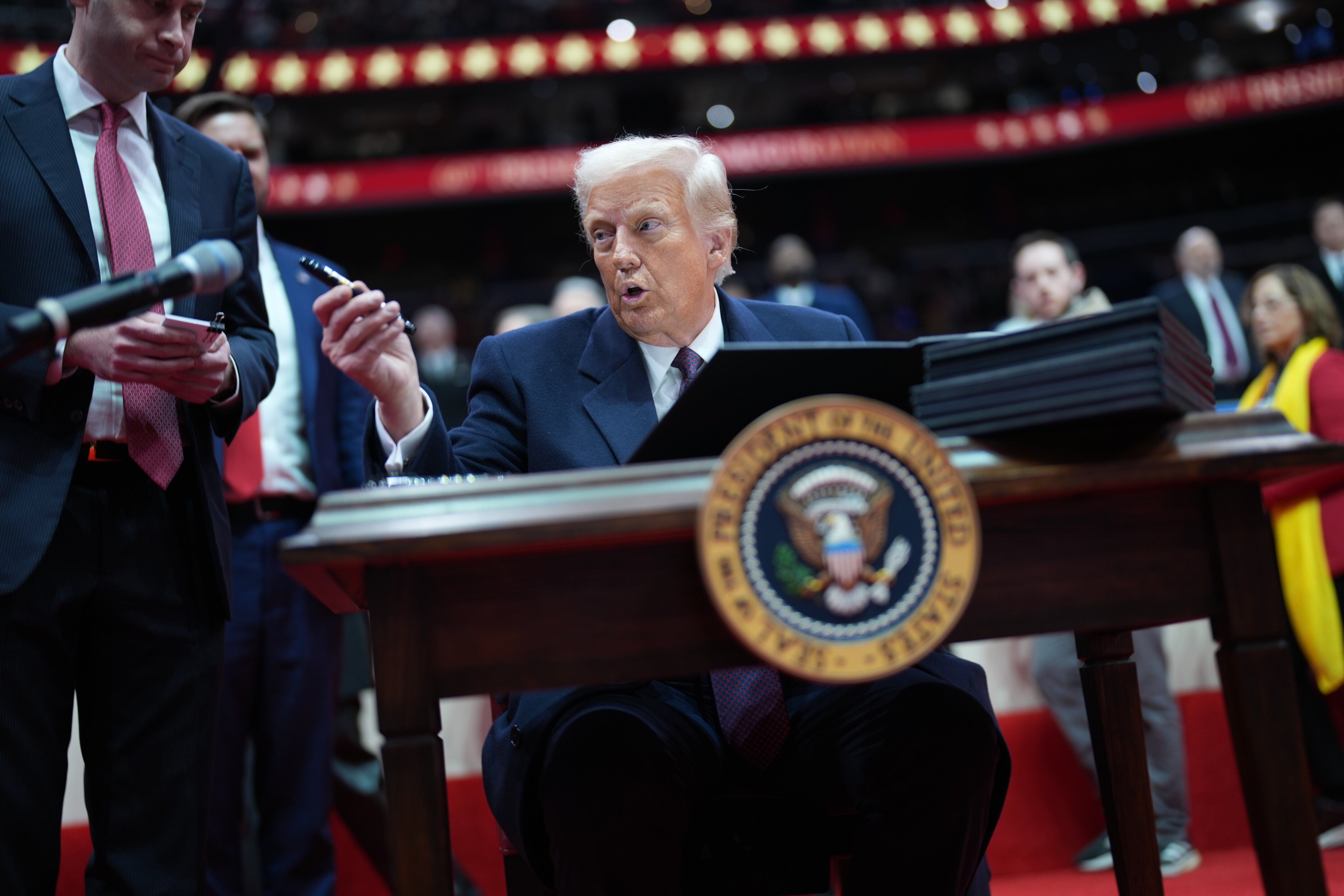Votebeat is a nonprofit news organization reporting on voting access and election administration across the U.S.
This news analysis was originally distributed in Votebeat’s free weekly newsletter. Sign up to get future editions, including the latest reporting from Votebeat bureaus and curated news from other publications, delivered to your inbox every Saturday.
The tense final days of President Joe Biden’s administration and the frenetic early hours of President Donald Trump’s second term muddied the waters on critical issues that could reshape our democracy.
First, Biden. News of his final days in office centered on his use of presidential pardon power and his announcement that he considered the Equal Rights Amendment to have been ratified by the states, a legally controversial opinion that still requires more steps before it goes into effect. The proposed constitutional amendment enshrining gender equity was approved by Congress and sent to the states more than 50 years ago.
Then Trump came into office, and immediately raised his own set of constitutional questions. He issued sweeping pardons to people charged or convicted in connection with the Jan. 6, 2021, attack on the U.S. Capitol.
He also rescinded a raft of Biden’s executive orders, including one related to the census, signaling that he may revisit an abortive effort from his first term to alter the scope of the decennial count.
The 2021 Biden order had reaffirmed the U.S. Census Bureau’s longstanding practice of counting people “without regard to immigration status.” It cited the 14th Amendment to the Constitution, which calls for representatives to be apportioned by “counting the whole number of persons in each State.”
“There are very few constitutional clauses that are as clear as that,” said Michael Li, a senior counsel in the democracy program of the Brennan Center for Justice. Indeed, the U.S. Supreme Court and other courts have long held this to clearly mean that every resident of a state must be included in the count, whether they’re citizens, legal permanent residents, or living in the U.S. under other circumstances.
The census numbers are used for many purposes, including allocating resources to states and determining congressional representation, which means that the Trump-Biden back-and-forth has high stakes.
During his first term, Trump had tried to use the 2020 census to ask questions and amass data on people’s citizenship status. That was seen as a step toward letting states draw voting districts based on the number of voting-age citizens rather than total population. In 2016, Li points out, the Supreme Court left open the possibility for states to use such alternative methods.
The Supreme Court shut down Trump’s effort to include the citizenship question on the 2020 census, but it didn’t preclude adding such a question in the future.
Trump’s second term won’t include a decennial census, but preparations for the next one must start long before 2030, and Trump’s revocation of Biden’s order signals that he intends to influence it, especially on the issue of citizenship.
Indeed, look at Trump’s move in the context of his own executive order limiting birthright citizenship to the children born to American citizens or legal permanent residents.
This order challenges the longstanding reading of the 14th Amendment, which says in the first sentence: “All persons born or naturalized in the United States, and subject to the jurisdiction thereof, are citizens of the United States and of the State wherein they reside.” That amendment also guarantees equal protection of the law to “any person.”
Writing for the majority in the 2016 Supreme Court ruling Li referenced, Evenwel v. Abbott, Justice Ruth Bader Ginsburg quoted founding father Alexander Hamilton as saying, “There can be no truer principle than this — that every individual of the community at large has an equal right to the protection of government.”
Naturally, challenges to the legality of Trump’s citizenship order are coming in fast. At least 22 states have signed on as plaintiffs in a wave of lawsuits. On Jan. 23, a federal judge temporarily blocked it, describing it as “blatantly unconstitutional.”
It’s impossible to say how these presidential decisions and challenges will play out in the long term. But they will almost certainly cast Americans into renewed and crucial battles over who counts in our democracy. The outcome of these battles could reshape representation for everyone.
Carrie Levine is Votebeat’s interim editor-in-chief and is based in Washington, D.C. She edits and frequently writes Votebeat’s national newsletter. Contact Carrie at clevine@votebeat.org.






